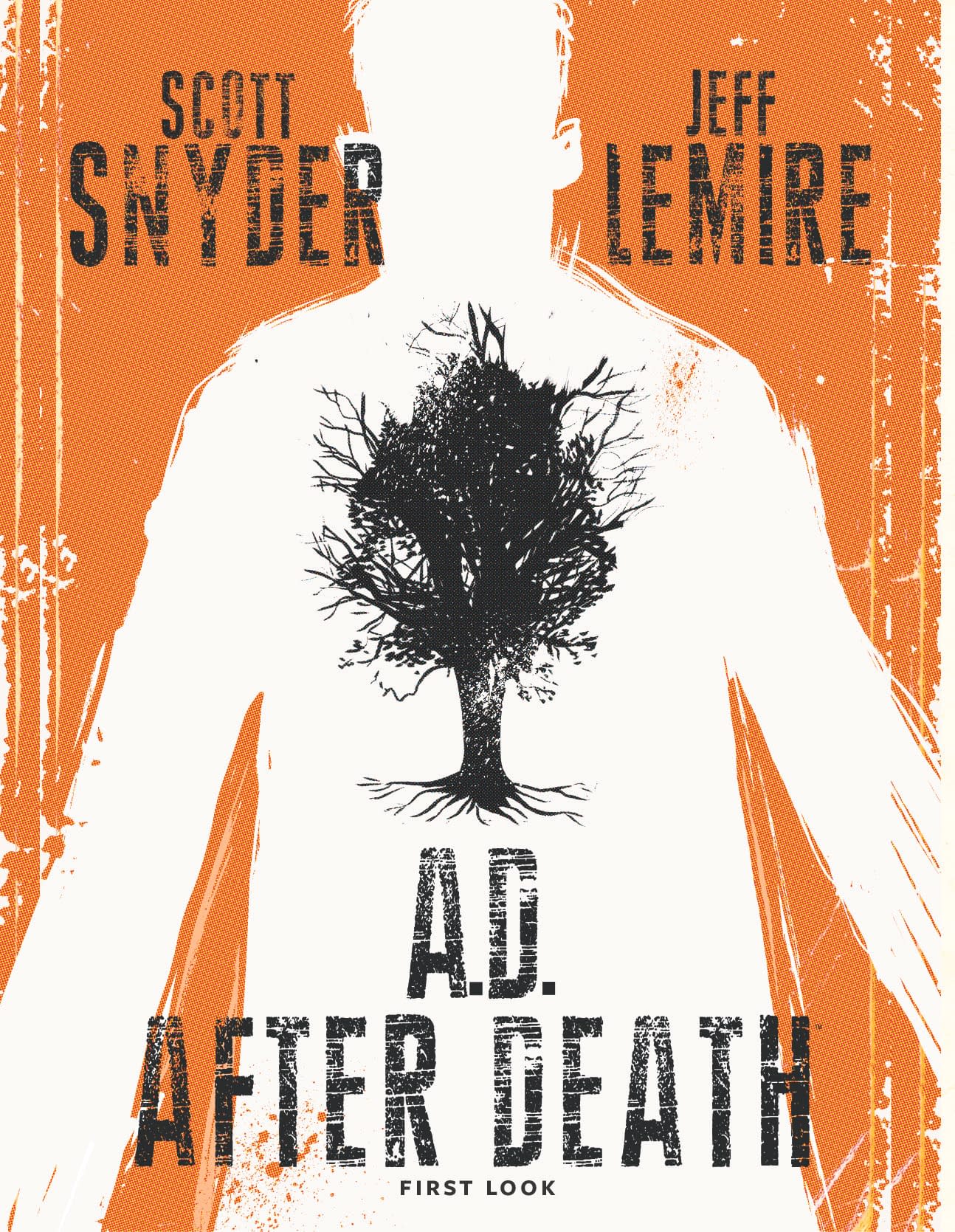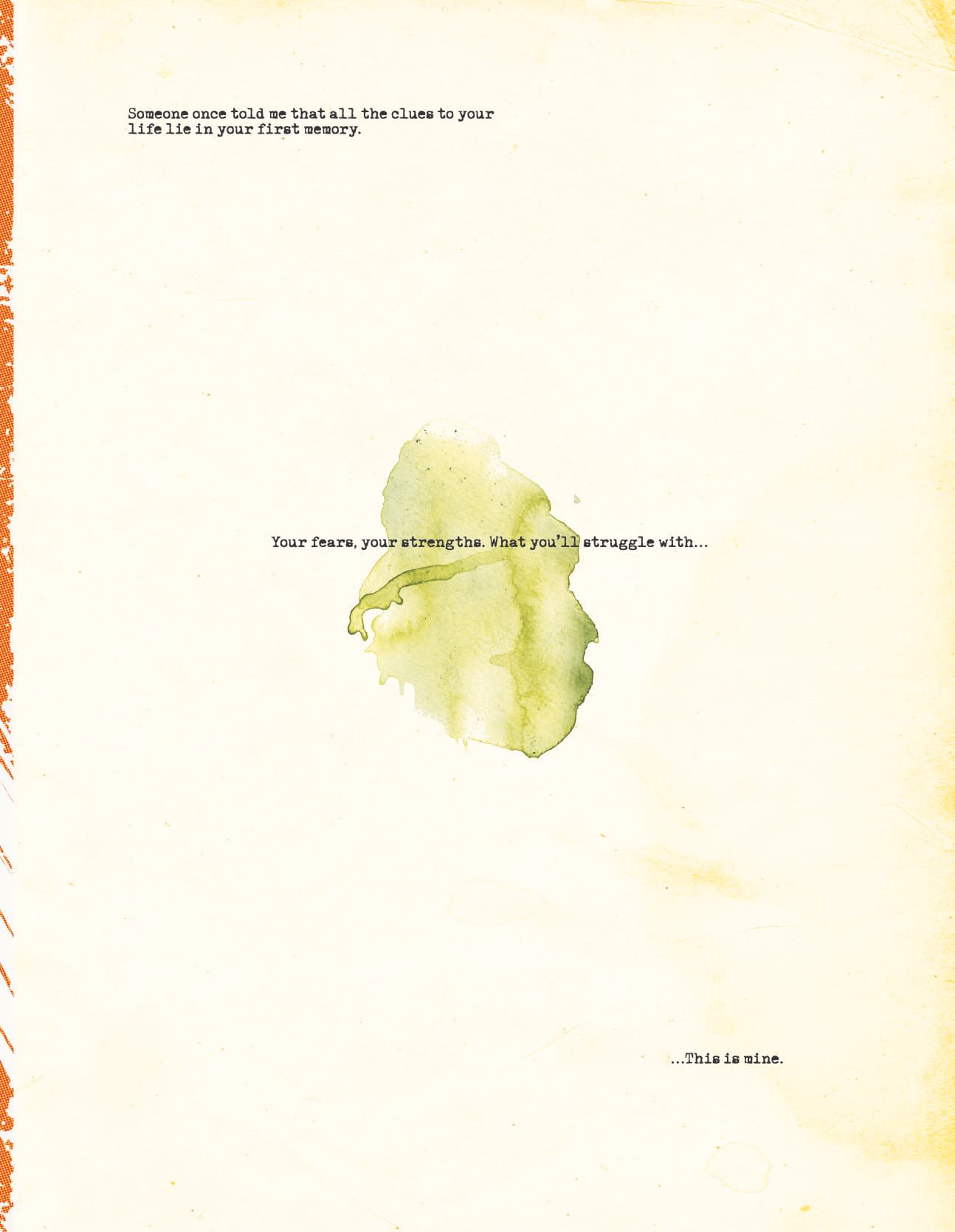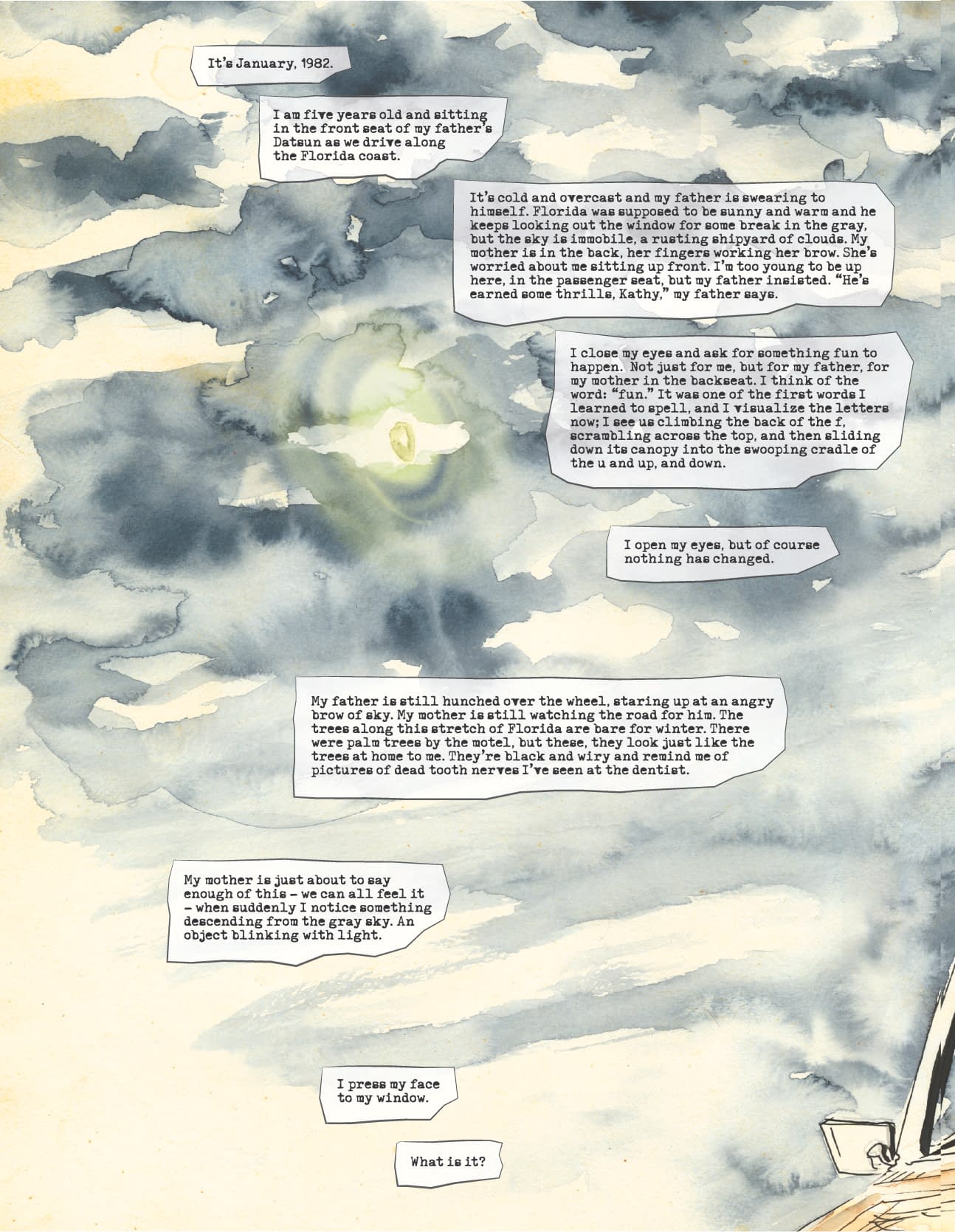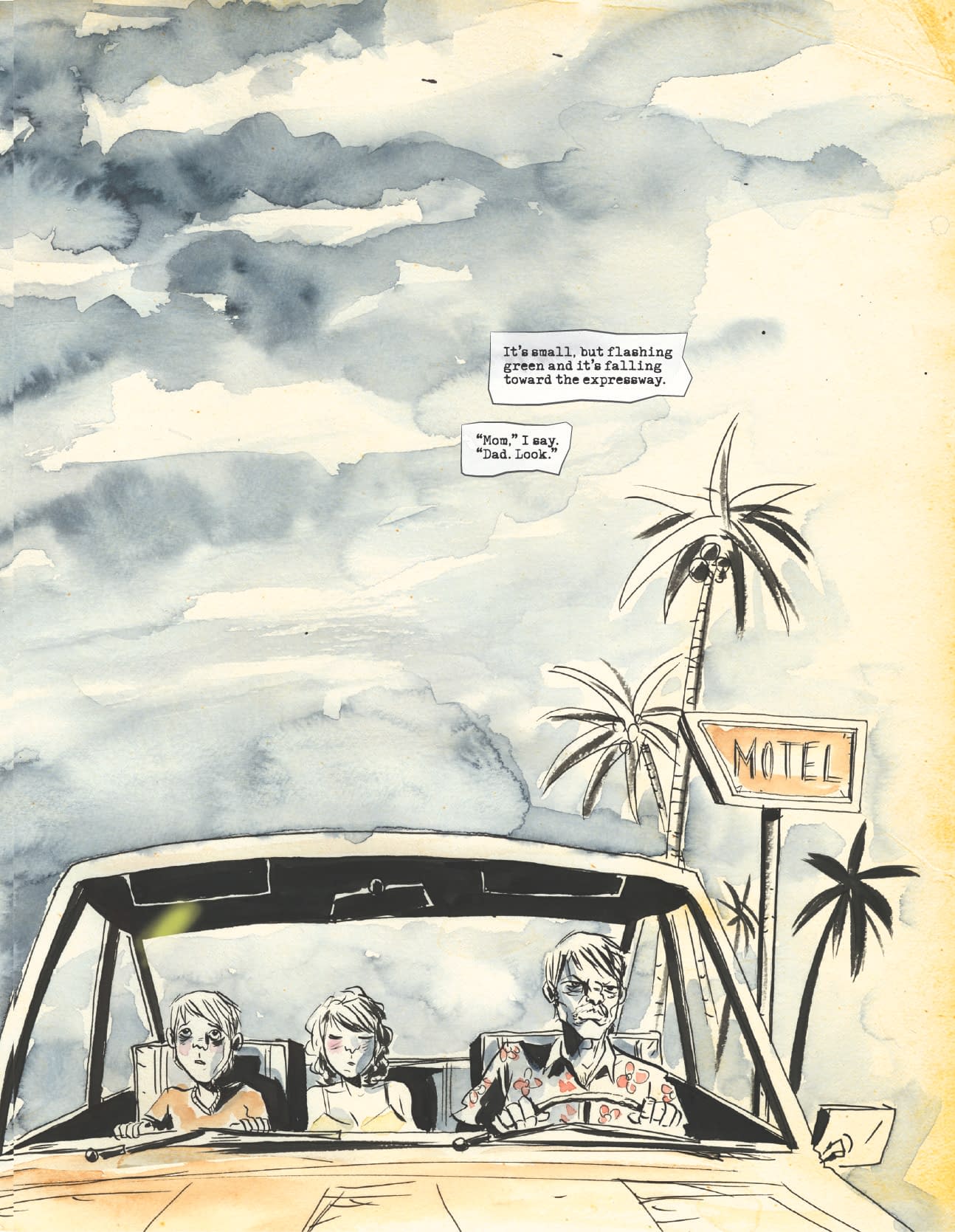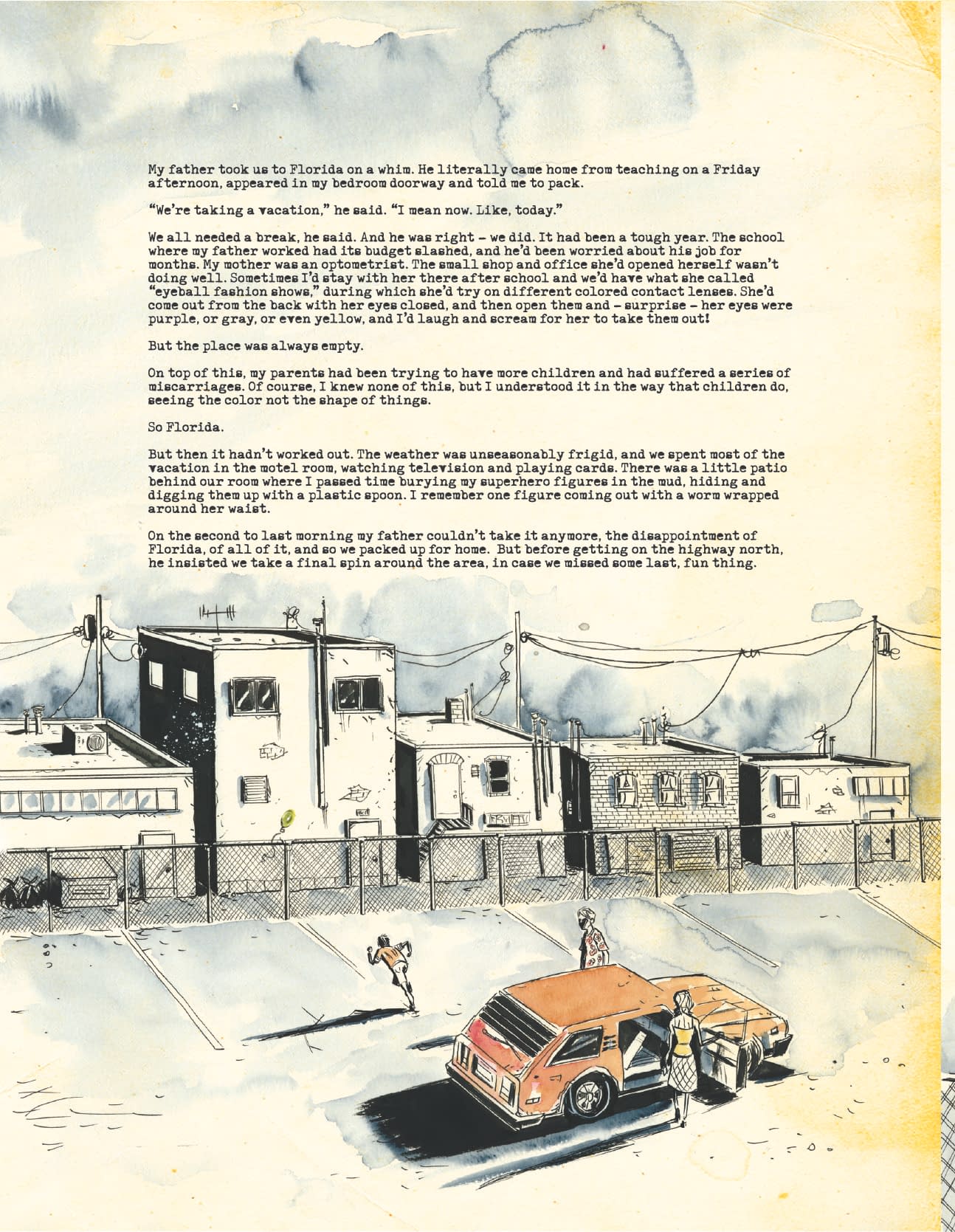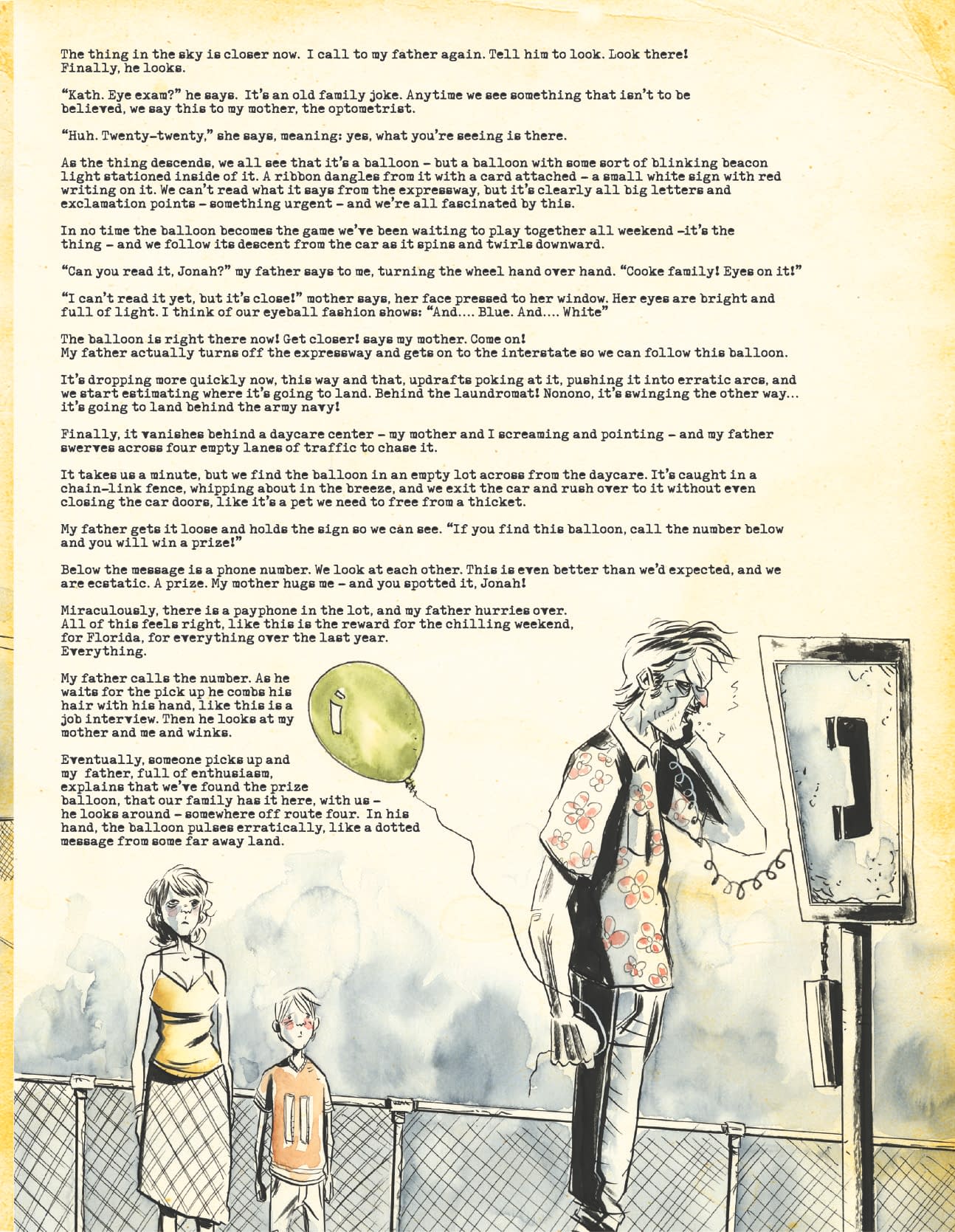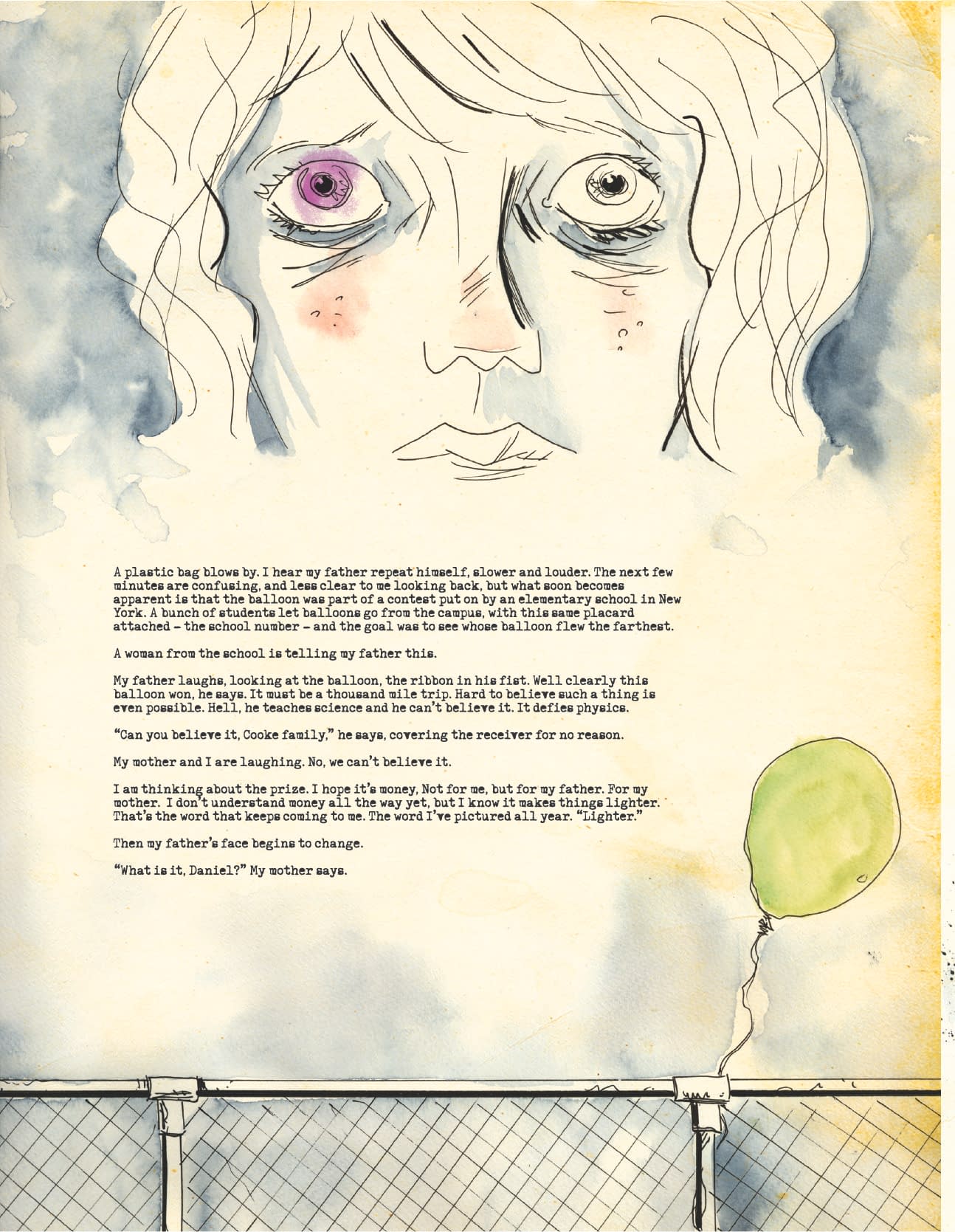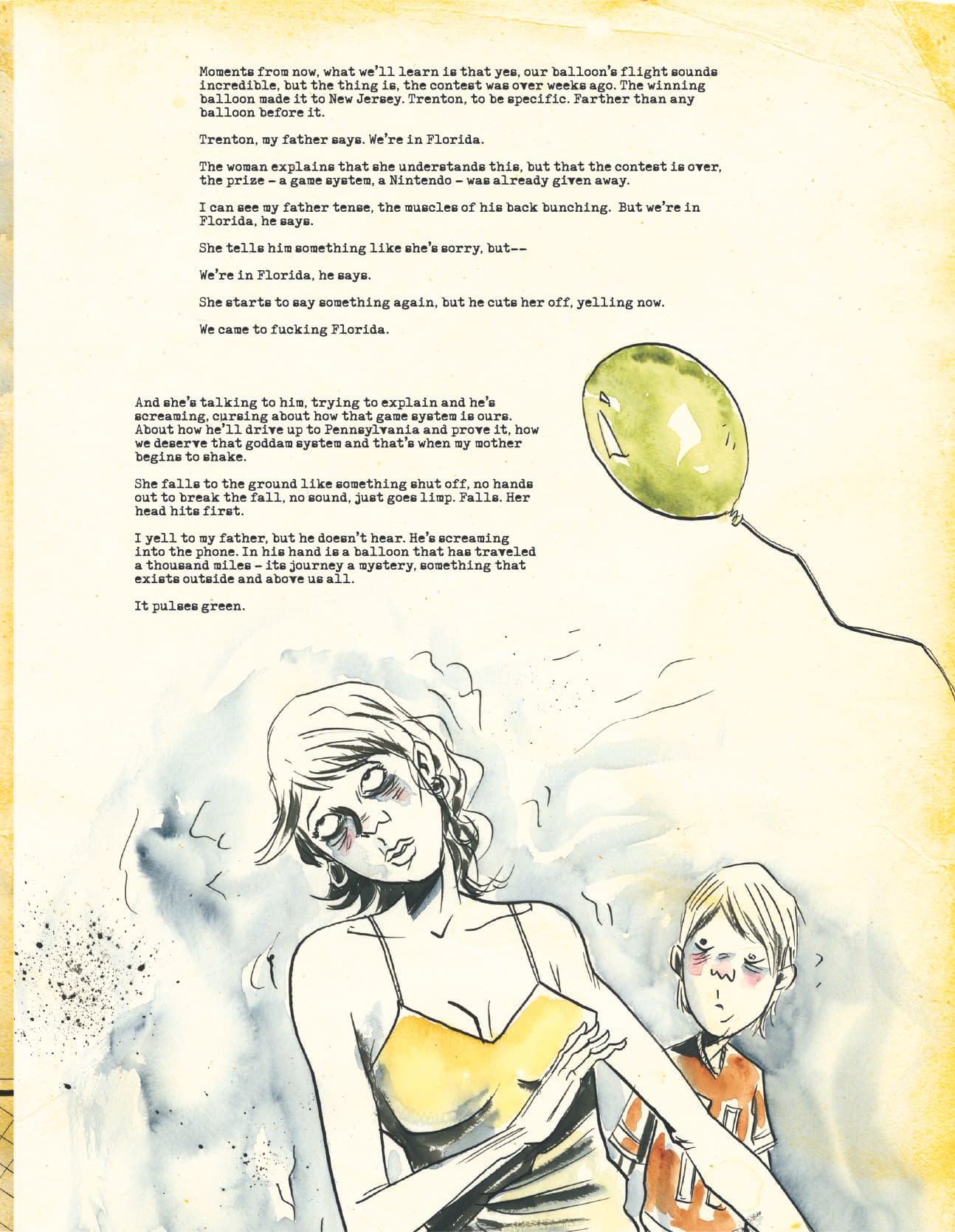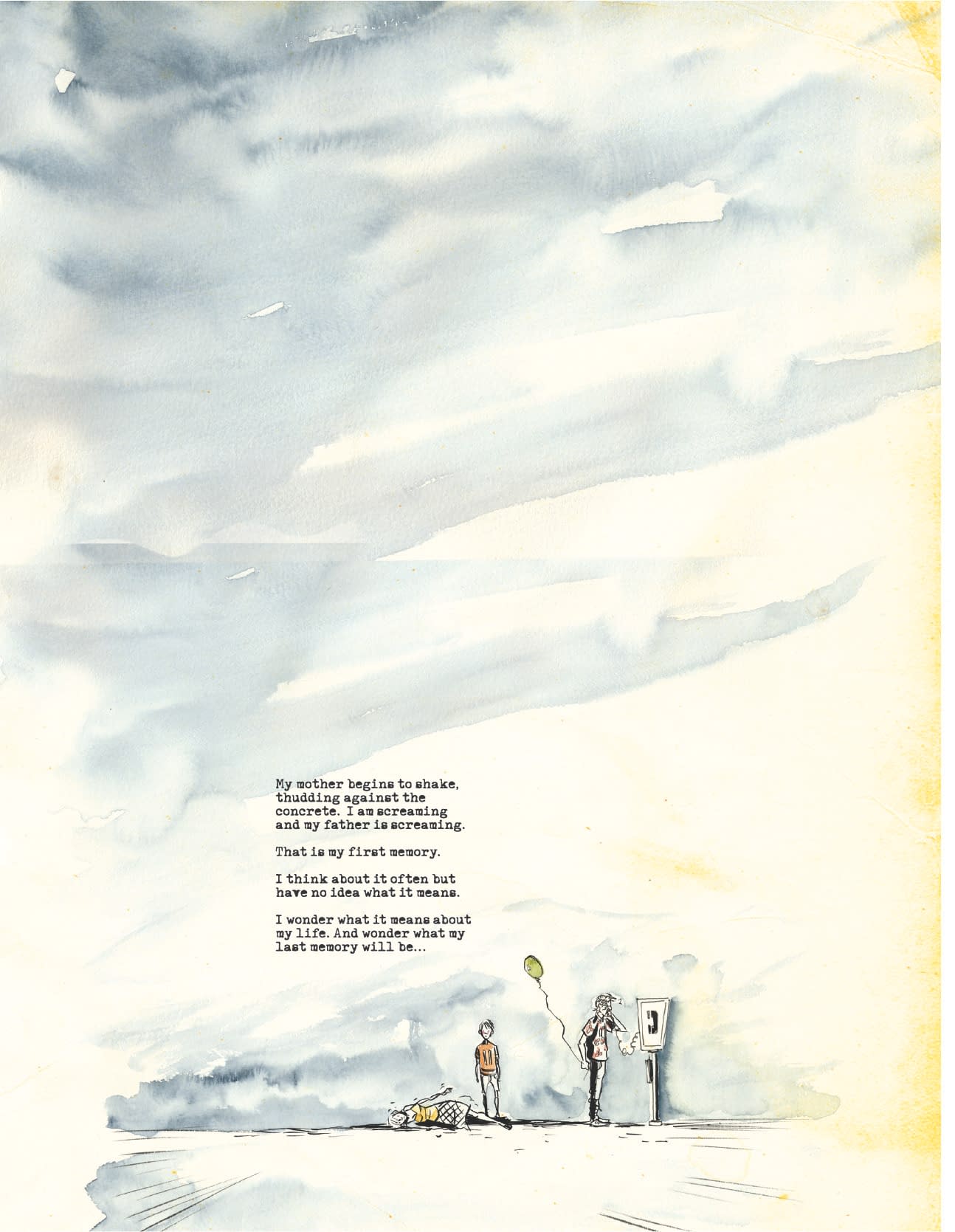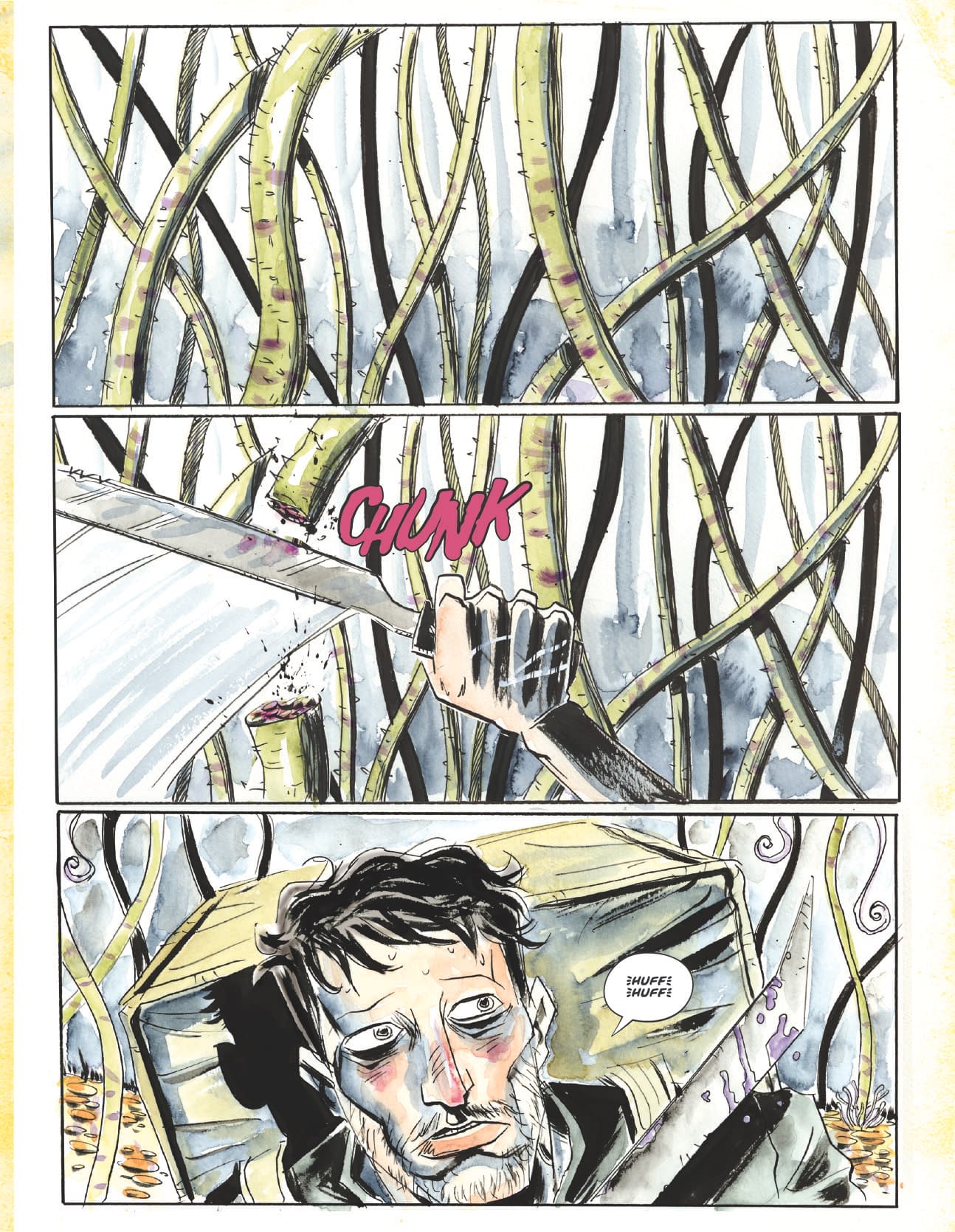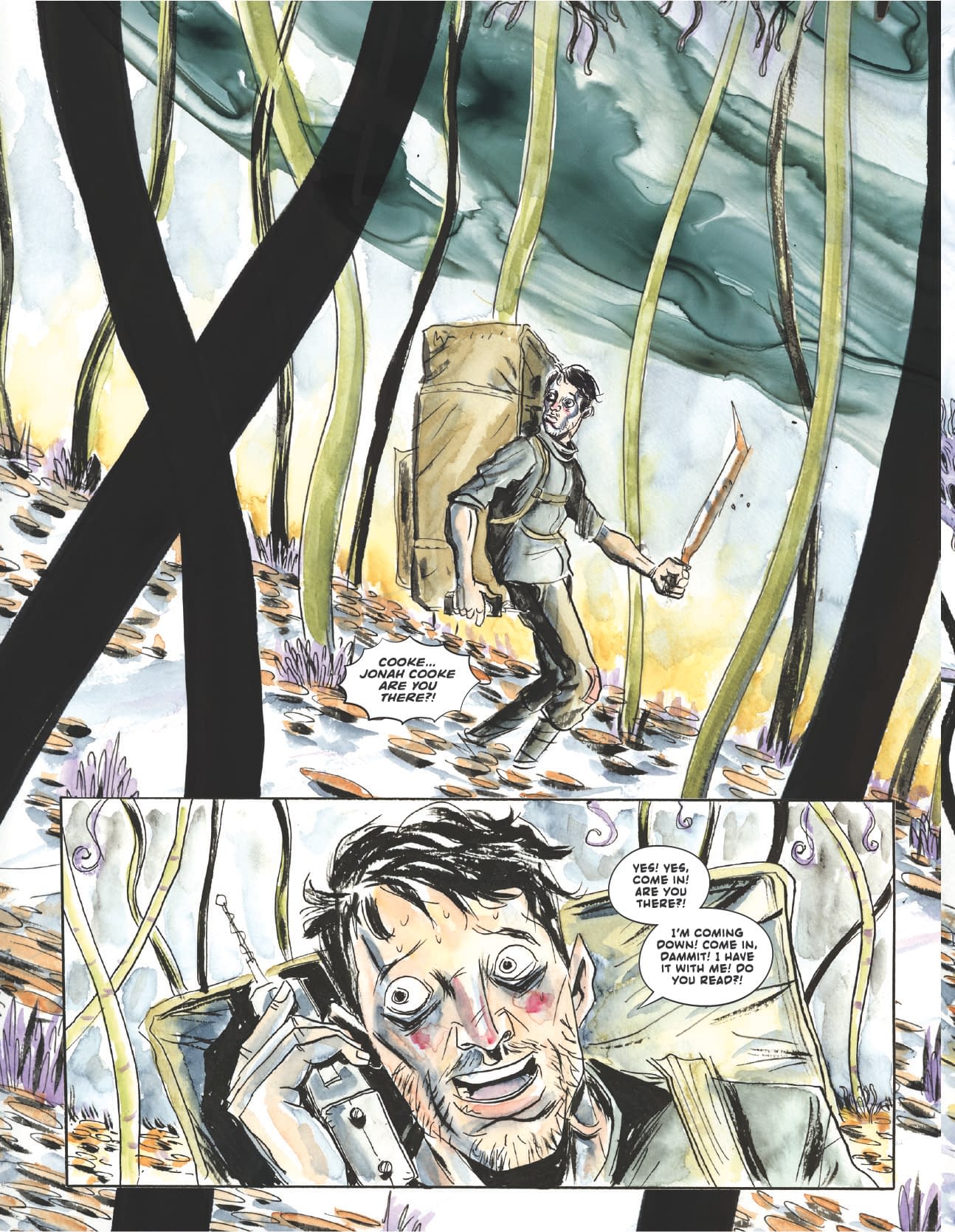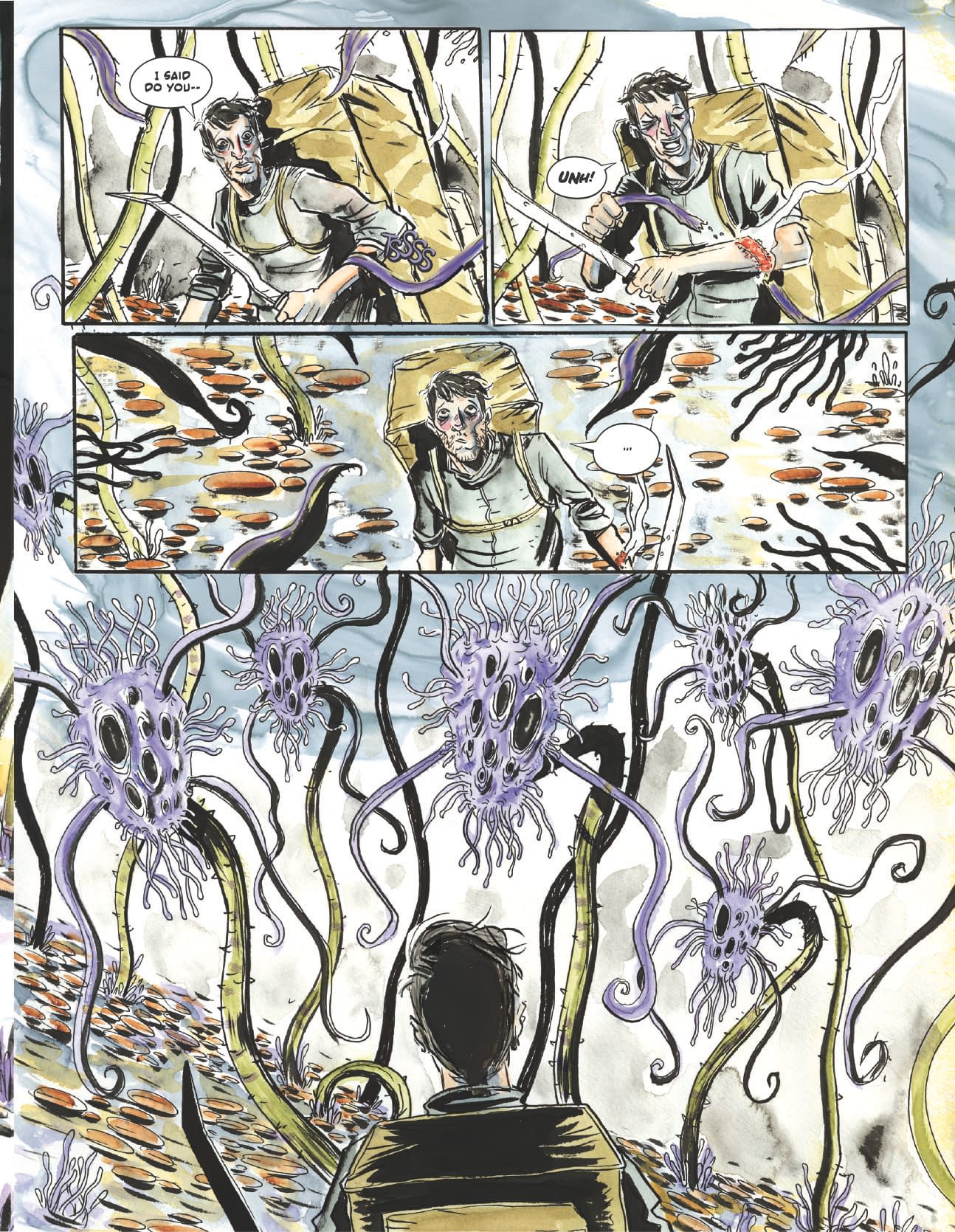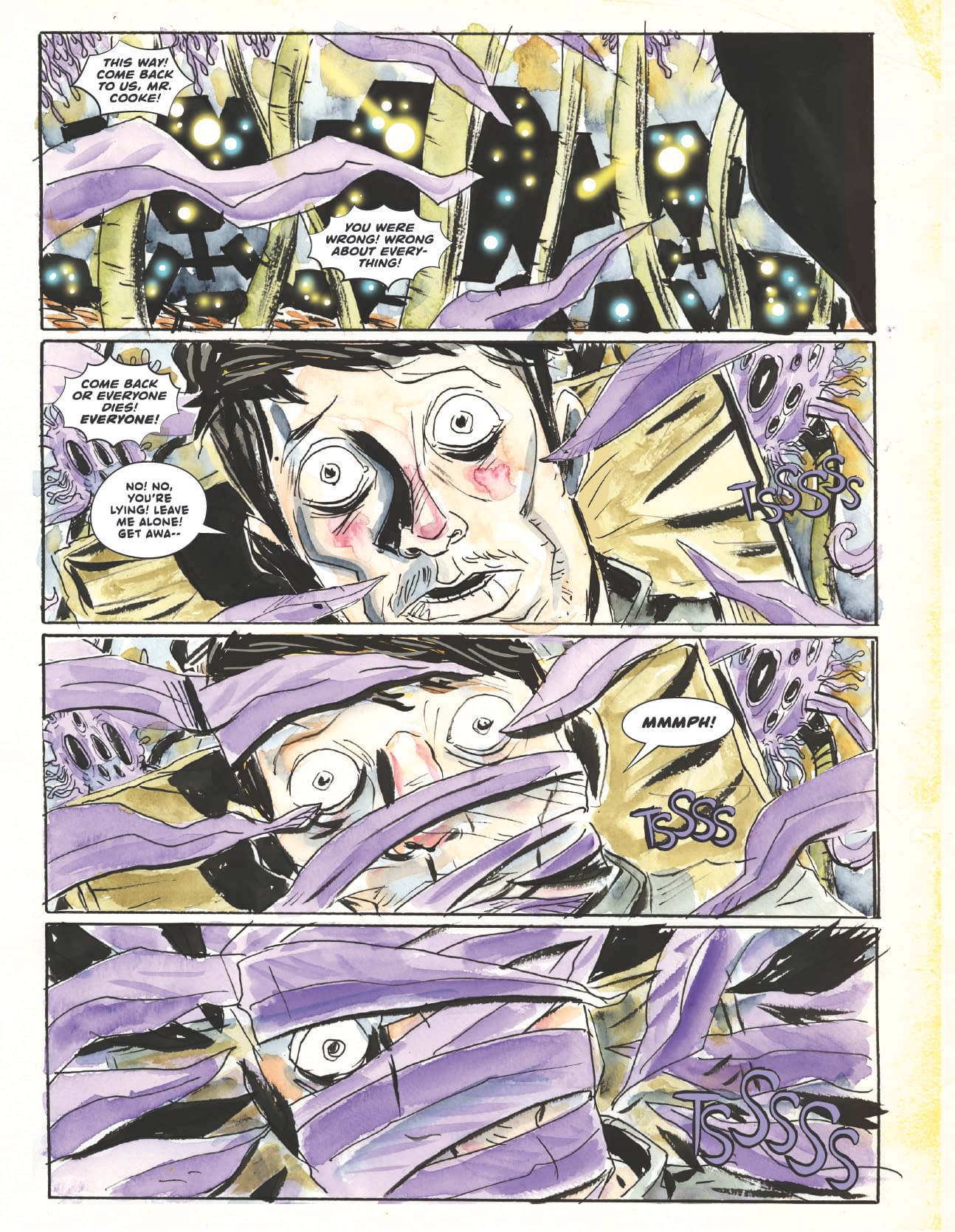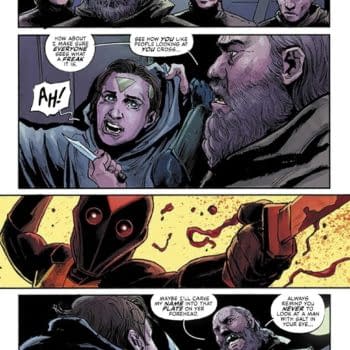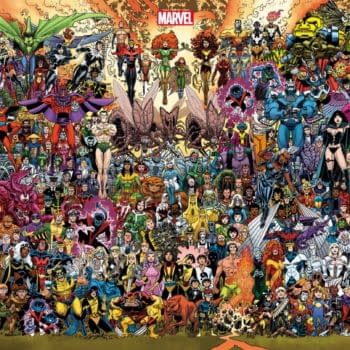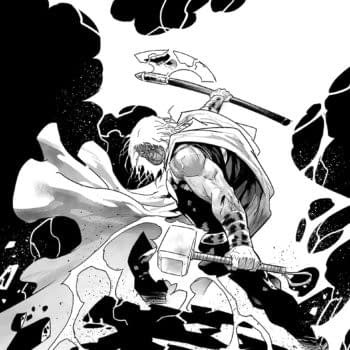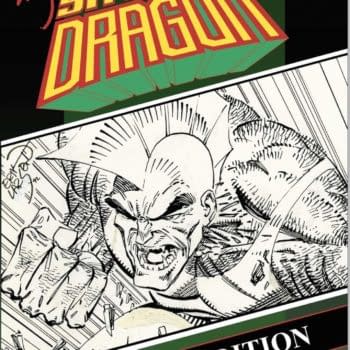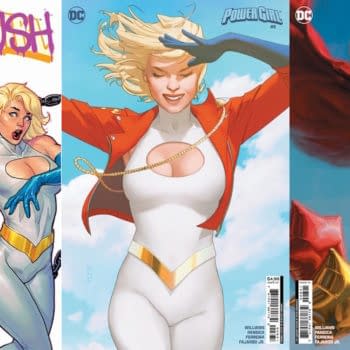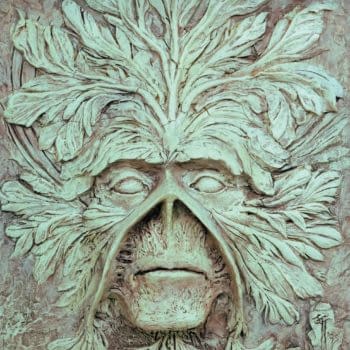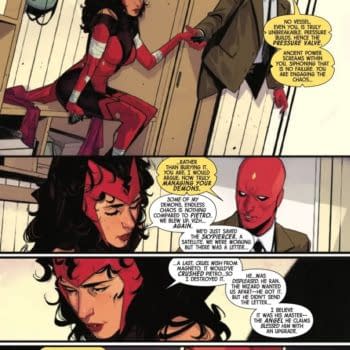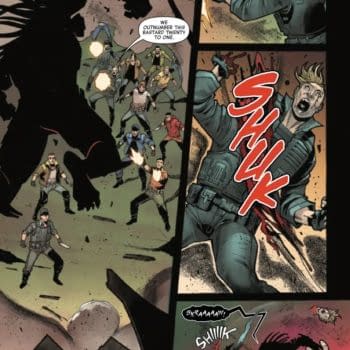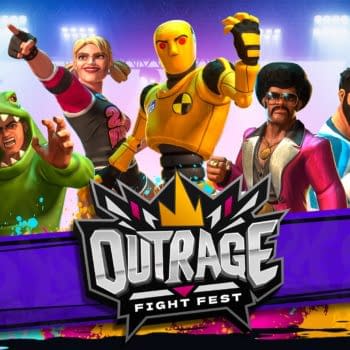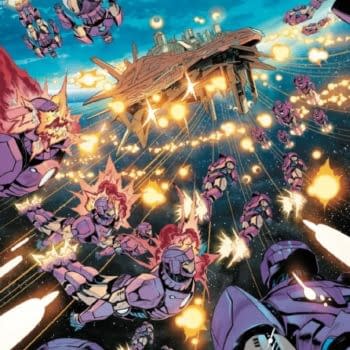Posted in: Comics | Tagged: Comics, entertainment
Talking To Scott Snyder And Jeff Lemire's About The Cure For Death
By Octavio Karbank
Penned by Scott Snyder and with artwork by Jeff Lemire, there's a book that came out this week that ya'll should be paying attention to. A.D.: After Death, created by two powerhouses in the industry, looks just about as gnarly and fascinating as you could ever imagine. Both Mr. Scott Snyder and Mr. Jeff Lemire are two modern day creators at the top of their game; they are in their literary and artistic prime. Once their name gets stamped on a project, you can bet your britches I'll be there to see what they've got cooking.
While I've met Mr. Snyder multiple times over the years, and got to talk to Mr. Lemire several months ago about his Black Hammer, I'd never had the opportunity to talk to them simultaneously, albeit over the phone. Still, as the adage goes, every dog has his day, and I was thrilled to have a chance to speak with these perfect gentlemen about their latest work.
The phone call started smoothly with my calling Mr. Lemire first, though minutes later Mr. Snyder would join in. Despite my being on the verge of geeking out, I like to think I held it together long enough for the following interview to take place. After a small series of pleasant introductions, we jumped right in:
OK: What's A.D. about?
Jeff Lemire: The high concept of A.D. is that it's a science fiction story set in a world where death has been genetically cured; it's a future civilization where this has happened. We're following one man named Jonah Cook who goes on an odyssey to rediscover himself after living for hundreds of years and living with secrets that will affect both himself and the structure of the society. That's the high concept of the book, but really it's science fiction world building. On the other side you have literary and poetic meditations on the past. It's a weird combination of deeply personal and literary work that I'm very proud of, but it also has that commercial sci-fi stuff that we both love doing too.
OK: When does A.D. come out and how many issues will it be?
JL: A.D. is three volumes, the first of these books ships November 23rd and each volume is about eighty pages each and they are oversized as well. They are tabloid-sized books.
OK: So how long does it take to make a single volume?
JL: I started drawing A.D. about a year and a half ago. It was originally going to come out as one big graphic novel, but the further we got into the creative process the book took on these three chapters naturally. It just seemed like a good idea, instead of putting them out all at once. We don't see that very much anymore. When I was a kid growing up, the prestige format books were a lot more common and they used to seem really special and would stand out. I think Scott and I thought it would be a cool way to go back to that and just do something a little different. The whole driving force behind this project was to push each other and do things a little differently than we usually do every month on the Marvel and DC front; even our Image stuff and just pushing boundaries a bit, in terms of format and structure.
OK: What's been the biggest challenge, artistically, on A.D.?
JL: It's been interesting, a real odyssey. We started nearly two years ago. In developing what this future society would look like, through a number of stumbles, I first tried styling it as this really utopian, really futuristic world. It was a little more typical of what you find mind in speculative science fiction. I worked in that design sensibilities for a while, getting a sense as to what that world looked like, what people wore, the technology that they had, and it was very futuristic, but it never really felt right. Scott and I really struggled with it when we were first starting to write the book, trying to find what this world looked like. Every time I tried to do something "futuristic" it just looked really bad, like the worst of Star Trek. So we both stepped back from it and thought about what if this future didn't look like how we imagine the future, but was much more akin to what we have now.
He loves American history and I love doing small town stuff, and we decided on this world not being super futuristic, but rather on the idea of small town Americana with just little bits of technology plopped into this landscape that really stood out because they were so alien. Once we started working on that idea, everything else clicked. It felt like us. For me, visually, that was the biggest thing I had to get over. It took a while for me to adjust to drawing something that I wasn't writing, because I've only ever drawn stuff that I've also written. There was a little bit of a learning curve there, but me and Scott settled on a working method that was conducive to what we both bring to the table. He was doing half the book as prose with me doing illustrations and then doing the other half in a more traditional comic; we'd have conversations over the phones about the comic scenes, sections, and what would happen, and we'd plot them out via conversation. I'd then just take the information, and layout the storytelling, panel to panel. I wasn't drawing from a full script, I had the freedom to experiment and do the visual storytelling myself. Scott would go off while I was doing those scenes and focus on the prose stuff, which was very time intensive.
OK: What do you think Scott brings to the story with his writing?
JL: I came on this book because first of all, Scott is just a really good friend of mine and we've been collaborating, not directly together, since out Swamp Thing/Animal Man stuff, but we've always acted as each other's soundboard when we're working on new projects together. We've kind of always been close in that way. We'd always wanted to work on something more substantive together. Aside from that, I have a lot of respect for him as a writer. He does a lot of things very well that are very different from the way I do them and I knew that I do things very different from him as a writer as well. I thought if we could bring those two aesthetics together, we could do something really unique. Scott comes from a literary background. Before he was doing comics, he wanted to be a novelist and wrote short stories and prose and published a couple books before getting into comics. He has a real way with language and using language to build a story that I don't have. I tend to be much more visual, even when I'm writing stuff for other people. I approach it all visually; my dialogue tends to be rather sparse. He uses language really well. That was something really fun for me to take, his prose sections, and his strengths as a writer and put my illustrations to them and create something that I think combines what we both do really well, that situated each of our strengths. It's fun.
It was at this point Mr. Scott Snyder was able to join in the conversation
OK: I was wondering if you two could discuss the tone of the book. I know, Scott, that you incorporate a lot of your own thoughts, fears and anxieties of the world into your work. Is that the case here?
Scott Snyder: Yeah, completely! Thanks for asking that. The book is intensely personal and it was born of a short story that I mentioned to Jeff a few years ago, which had to do with a group that finds a cure for death. Jeff, who knows me well and has been my best friend for about the last seven years, encouraged me to expand the story and start writing it in a way that was more robust and start exploring the story possibilities and it became this bigger thing.
It's still a simple story. It's really about a man who's crippled about his fear of death, in the present day, and how it leads him to be part of this opportunity to be a cure for death in this surprising way he ends up being part of this community that lives for over eight-hundred years from the present day. The story intercuts the narrative that tells how that happened from his point of view, and tells the story of his life and the world as we know it now, and, in comics, shows his escaping that place. Even though it has a relatively simple structure, it has a lot of biographical material in it, and it's probably my equivalent to lying on the couch and telling your biggest fears.
On the other hand, despite the terror aspect of the book, the flipside is that it comes from Jeff being able to craft this story that has this speculative sci-fi element, where we live in this future that's completely different from the one we know now. The community where Jonah lives in is a place you can live in over and over again. It's up on this mountain that almost has a Mt. Olympus feel. No one knows what happens in the world below. It has this deeply personal, almost confessional elements in the prose that tells the story of how he came to live up there, then it has this sci-fi element that's told visually, and so wonderfully, by Jeff. It's easily the most daring thing I think I've tried and I'm intensely proud of it and thankful for Jeff being a part of it and thankful to Image for letting us do it.
OK: Do you guys feel any stress or anxiety that might come with people's expectations at seeing both your names on a book?
JL: I don't feel stressed, I just feel excited about the opportunity that we have. Scott and I are really lucky. Our careers have gone really well and we've been given opportunities to do all kinds of stuff we probably thought we'd never get to do in comics. He's one of the head writers of Batman and I'm one of the head writers of X-Men at Marvel and we're in such a spot that we can take a risk and go off and do this strange, literary, experimental project together and know that because of the success were having elsewhere, we can take chances on this; our whole career isn't resting on how it sells. We're free creatively and I feel really lucky to be in that position.
SS: Yeah, I feel the opposite in terms of stress of making it something that has the expectation of the work we do outside of this kind of indie project. For me, we both do indie stuff that's also high concept and bombastic, but this book was almost about going the opposite way. While it wasn't anti-commercial, we wanted it to be something that wasn't freighted with those expectations, that was deliberately challenging to both of us, in a way that was in conversation with our work that sort of said this is as far away from what we normally do. Just because that's where the story dictated it should go.
The story started as a more bombastic, little short story, and the shape its taken now is it's real form and I'm really proud of it. It's definitely not for every Batman fan or X-Men fan, but my hope is that it will bring a different kind of readership, in addition to the people who really like our work. Hopefully it'll draw in people who don't know us for this sort of thing. At the end of the day my favorite creators, and this goes for Jeff as well, are people that are always trying new things, and he's always had that space to go to in his own work, where he writes and draws. I don't have that. For Jeff, the thing I'm most grateful here, is that he encouraged me to go try prose and take more authorship here to try something that was less expected and comfortable for me.
If I had any stress on the book, and I did, it wasn't so much about how it sold or the expectations around the two of us, I just didn't want to let him down or mess something up with the story. I think the pressure of the opportunity to get to work with such a great friend, someone I really admire, brought the most nervousness to me. Also, just to underscore what Jeff said earlier, we both wanted to do something that was really daring from what we normally do; Image was so supportive and let us change the form of it as it grew. One of the things we're doing with some of the proceeds from the book is to fund Creators for Creators, the organization they've set up to help up and coming creators that need financial and creative support on the books they're working on.
OK: Without giving too much away, what are you most excited for people to read/experience with A.D.?
SS: I think the thing I'm most excited for people to experience is the format itself. I'm so proud of the way that the prose and the artwork go together. Jeff and I both have similar priorities in life, in terms of family, kids, and all that kind of stuff, and I think we have similar fears and hopes. So the challenge here was to work intensely individually, with him doing some of the best work of his career and me, having to write prose the way I used to about ten years ago, and do the best prose I've done and find a way of blending that.
OK: What would your teenage selves think about A.D.?
SS: I think my teenage self would just be excited to hear that I'm writing comics! I always wish I could go back there and tell my anxious, totally-nervous wreck teenage self not to worry. My teenage self would be extremely impressed with my old, middle-aged, broken down self.
OK: You both have been doing this for a while, so I'm wondering, do you still feel the magic of comics?
JL: Oh god, yeah. It's what I live for, man.
SS: Jeff and I, like with this project, opened a new set of doors for me creatively. We were just talking about other projects we could do, both in the world of A.D., but also just inspired by ideas that don't fit in this book but kind of came from it in certain ways. Then we were talking about superhero projects that are coming up.
I feel that as long as you're doing stuff that is different from what you've done before, than it is endlessly exciting. And I just want to say that the reason we can give money to Creators for Creators is because of the fans. This isn't a book that we expect people to come out in droves for, because it's different and strange, but the fact that people have been so supportive and far exceeded our expectations with the number of orders and all that stuff, speaks to the robust and exuberant nature of comics fans in general. They make you excited to go to work, because they want you to take risks and do things that are different from what you've done before. The community is extremely supportive in that regard too.
OK: In wrapping up, I've asked this question to Jeff, so Scott, this one is for you: What makes for a great writer?
SS: To me, I honestly think it takes vulnerability. I taught for a lot of years before this, at different schools; teaching the craft of plot or story is so fun. The thing that separates the people who you take an interest in immediately from the people who have a great aptitude for it but have something missing, is that sense of writing things that matter to you on the page, even if those things are embarrassing or make you vulnerable. Writing things that scare and inspire you on the page through these characters; if you're doing licensed stuff or your indie work, you find ways to do it that invite readers in immediately. That's one of the things that I try to harp on the most in class to my students, is that writing the story that would mean the most to you if you picked it up today. Sometimes that means you have to expose yourself a little bit.
OK: Thanks, you guys!
Octavio Karbank is a writer and bona fide Whovian. Living in Massachusetts, you can find him on Twitter @TymeHunter and his blog www.cozmicventures.com


